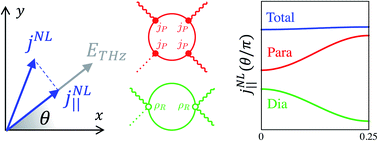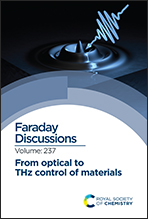THz non-linear optical response in cuprates: predominance of the BCS response over the Higgs mode
Abstract
Recent experiments with strong THz fields in unconventional cuprate superconductors have clearly evidenced an increase of the non-linear optical response below the superconducting critical temperature Tc. As in the case of conventional superconductors, a theoretical estimate of the various effects contributing to the non-linear response is needed in order to interpret the experimental findings. Here, we report a detailed quantitative analysis of the non-linear THz optical kernel in cuprates within a realistic model, accounting for the band structure and disorder level appropriate for these systems. We show that the BCS quasiparticle response is the dominant contribution for cuprates, and its polarization dependence accounts very well for the third-harmonic generation measurements. On the other hand, the polarization dependence of the THz Kerr effect is only partly captured by our calculations, suggesting the presence of additional effects when the system is probed using light pulses with different central frequencies.

- This article is part of the themed collection: From optical to THz control of materials


 Please wait while we load your content...
Please wait while we load your content...